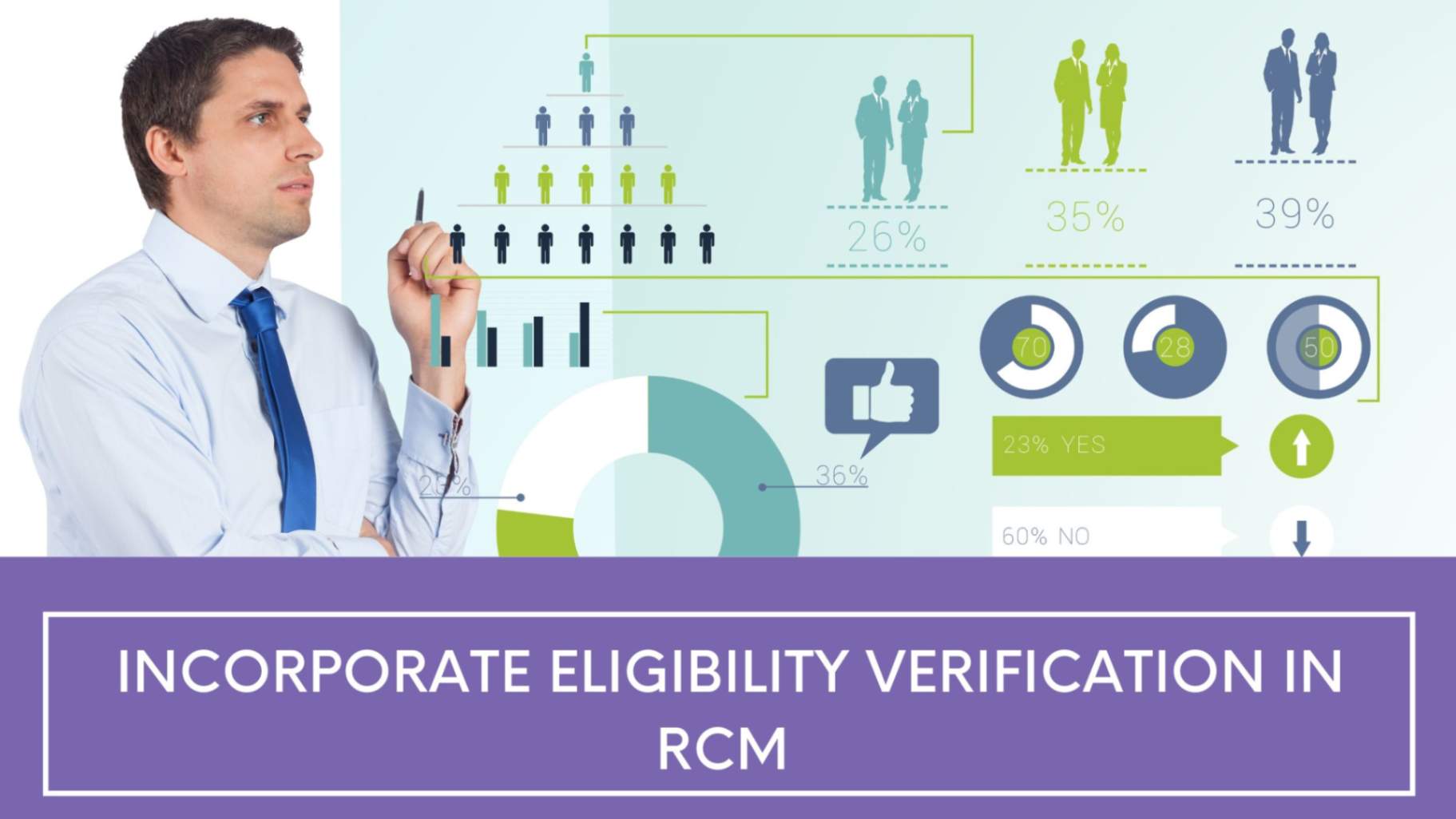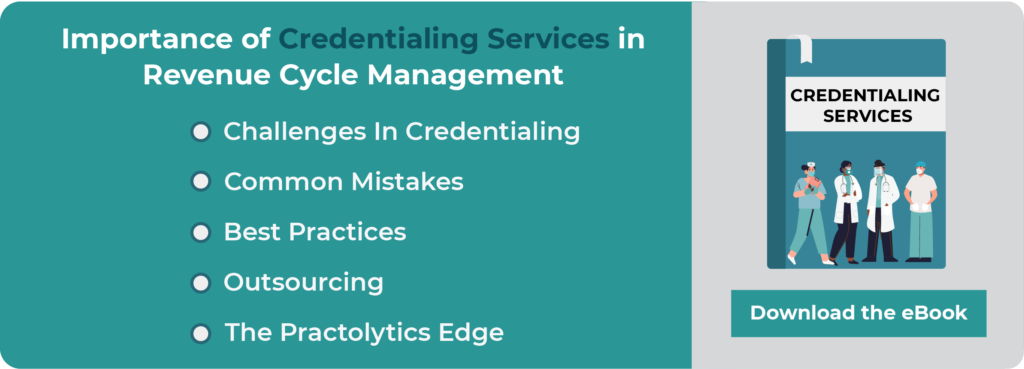Incorporate Eligibility Verification in RCM
Eligibility verification is the process of checking the patient’s insurance details to verify coverage and benefits under the patient’s plan, ensuring the care provided to the patient is payable by the insurance provider. Generally, this takes place in the practice itself. Since most Americans are covered by an insurance plan, it is imperative for practices to ensure clarity in the process in order to obtain effective reimbursement for the services rendered and eliminate any instances of unpaid claims.
It takes a lot of time to determine the eligibility for each patient within the practice itself. It gets really difficult for the practice staff to juggle their day-to-day activities with calling the insurance payer to identify each patient’s suitability before the appointment.
However, it is unavoidable for practices and to overlook this process would mean severe revenue leakage and unprocessed claims. And for that, practices must appoint experts with sufficient knowledge of the process and allow them to handle it. Practices must facilitate solutions so as to let the Eligibility Verification team manage the entire process and adapt to changes on the fly.
Table of Contents
The Process
The insurance verification process must take place prior to the patient visit or admission to the medical facility. This can eliminate all the instances of claim rejection, and also bring in hassle-free processing of the rest of the steps. If the claims get rejected once, it gets tiring to file them and might even get the practice to a dead end for their payments.
The three things to keep in mind while carrying out the eligibility verification process:
- The patient’s percentage of coverage for the given diagnosis or treatment.
- The patient’s liability for co-pays and coinsurance.
- Pre-authorization requirements for any medication or treatment.
Let us look into the primary steps in the Eligibility Verification process:
1) Collect accurate patient info
The Eligibility Verification team must determine if the given patient information is correct and make changes for any updates if needed. Even the smallest error can lead to a claim rejection, so the team must buckle down to obtain precise information. The patient information includes Name, insurance ID, number, claims address, name of the insured, group number, effective and end dates of the policy, and such.
2) Communicate and check with the payer
Insurance cards can get discontinued due to various reasons or there could be new policies added. To make sure that the practices are well aligned to this information, they must call the insurance provider and confirm the status of the given patient’s insurance card.
Practices or RCM providers can also connect with large insurance companies through EMR and billing software. Electronic communications systems have evidently proven their efficacy in all industries. It can process the medical records and other essential data quickly without any errors in place, which can then be cross-checked by the insurance companies for confirmation.
3) Proper follow-up with patients
For out-of-pocket expenses, it is imperative to contact the patients and provide them with the essential details so that they can go ahead and make arrangements for the payments. In addition to this, if there are any concerns regarding the stored information, practices must take note of it from the patients at regular intervals.
If telephonic communication seems mainstream and ineffective, online patient portals can be put to use. This can allow them to have effective communication for both parties and come to terms with what must be done.
In case there are a few concerns and questions, follow up with the patient regarding insurance information.
The need for eligibility verification in healthcare practices
1) Reduced denials and enhanced reimbursements
An insurance verifier ensures smooth and easy checking of insurance eligibility and benefits, they play a crucial role in the eligibility verification process. They handle all the activities associated with verification by closely working with the patients. This helps to bring about enhanced reimbursements through a reduced number of denials.
2) Clean Claims
With accurate information, the claims submitted will be free from rejection due to demographic or any other errors. This will allow practices and revenue cycle staff to submit clean claims that result in increased collections and enhanced patient experience and satisfaction.
3) Enhanced Cash Flow
The persistent clean claims submissions, reduced denials, and patient satisfaction will bring about increased cash flow, reducing the number of unpaid claims and effectively raising the practice’s revenue streams.
4) Improved Workflow
The revenue cycle gets benefits big time with insurance verification. How? The process involves putting together information in a streamlined manner and that will help improve the RCM workflow at large, making space for enhanced patient experience.
5) Improved Self-Pay Revenue
As patient information is electronically connected with the healthcare database, self-pay revenue will rise. This streamlines the payment process for self-pay customers by assisting patients with unknown coverage and submitting their claims after cross-checking their eligibility and coverage online.
In a Nutshell
Eligibility verification requires the involvement of resourceful experts with apt knowledge of the process. But practices must focus on patient care more than anything and cannot compromise this for anything. So incorporating the EV process in RCM will take a huge load off of the practices and allows them to have a clear vision and rely on their RCM vendor partners for full reimbursements.
Practolytics delivers a streamlined RCM process with a full focus on medical billing, coding, credentialing, AR management, prior authorization, eligibility verification, contract negotiations, and such.
To learn more about our services, reach out to our experts at [email protected] or call us at (803) 932-9624
ALSO READ – 12 Things a Practice Must do to Maximize Reimbursements
Talk to Medical Billing Expert Today — Get a Free Demo Now!






